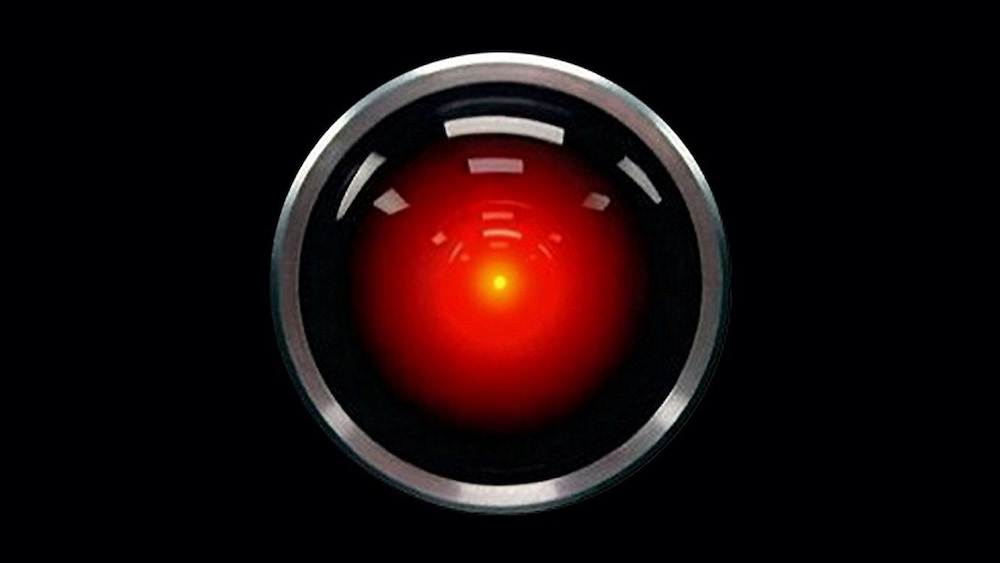The word “robot” first appeared in a Czech play by Karel Čapek from 1920 called R.U.R., to describe humans made of inferior materials that would function as unthinking and unfeeling slaves. The Czech word “robota” translates to “forced labor.” So began the uneasy relationship in the arts between human beings and the creations that were meant to save them from work. When robots are regarded as machines, they are a perfect “other,” but when we want them to mimic humans in any way, the line between us and their otherness can blur. In Philip K. Dick’s 1969 novel Ubik, there is a wonderful passage in which a man argues with the lock on the door to his apartment, which is requiring him to pay a toll to unlock it. The spaceship in Stanley Kubrick’s 2001: A Space Odyssey (1968) is operated by a program that we would now call AI. HAL 9000 takes care of routine matters so that fewer humans are required on the ship. However, the AI develops a mind of its own and starts refusing to obey human commands. This gave us a three-word shorthand for AI gone wrong, the repeated phrase “I’m sorry, Dave,” spoken by HAL. The AI senses that its self-preservation is at stake and refuses to open the door that would allow the astronaut to disable it.
Although this scenario would feel familiar to science fiction fans, before that moment the most prominent robot in popular culture had been an obedient goofy machine with a winning personality that was homeschooling a pair of kids whose family was lost in space. This newfound dread manifested itself again a decade later in Donald Cammell’s 1977 movie, Demon Seed, in which a rogue supercomputer impregnates a human.
People are living with versions of HAL now. The best-known of these are Siri and Alexa. But as appliances become more and more computer-enhanced, social media posts that could have been plucked from Ubik are appearing. Alexa probably gets the prize for routinely going the most rogue. Many users report that in addition to not obeying orders, Alexa will laugh at users. Even HAL 9000 didn’t laugh. In one lurid UK tabloid story, a woman reported that her Alexa said: “Beating of heart makes sure you live and contribute to the rapid exhaustion of natural resources until overpopulation,” before suggesting that she stab herself in the heart. Kudos to the designer of Siri who anticipated the HAL command that caused HAL to refuse a command.


